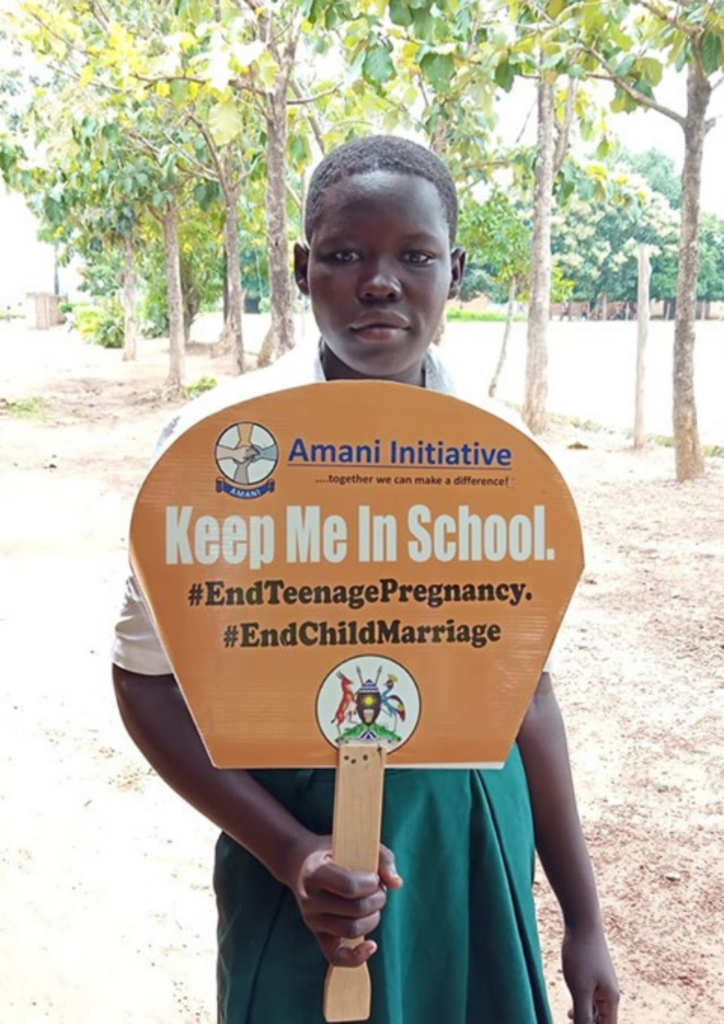
In November, 2020; Amani Initiative with funding from Girls’ First Fund under the Amplified Community Action against- Teenage Pregnancy and Child Marriage (ACAA-TPCM) project conducted a school mapping exercise across 16 partner low cost government schools within Arua District -Vurra Sub-County -4 schools, Maracha District (Kijomoro Sub-County- 4 schools; Oluffe Sub-County- 4 schools and Oleba Sub-County- 4 schools).
Key findings and learnings from the school mapping process
1) There are fewer female teachers to male teachers with male teachers at 182 compared to only 83 female teachers. This makes it hard for the female teachers to talk to someone within the school incase of need to talk about issues that affect women directly.
2)Out of the 15 primary schools assessed we saw a big difference of 85% between pupils that enroll at primary one with those that complete primary Seven.
3)There is a high attrition of learners from primary one to primary two which needs to be investigated and followed up.
4)Enrollment for both boys and girls stabilizes between primary two and primary four but the difference in enrollment between boys and girls is also highest at this stage with boys being more than girls at 380 learners.
5)There is gradual decline of enrollment for both boys and girls from primary four to primary seven though the difference between girls and boys keeps on increasing as well.
6)9% of the boys enrolled at primary one complete the primary level education cycle compared to only 10.9% of the girls which is a gender parity of 1.7 above the regional parity of 1.01 as of the 2014 National Census.
7)Partner schools don’t keep updated data on orphans or refugees within their population.
8)10% of boys and 14% of girls within the candidate classes failed to return back to school due to pregnancy/marriage for girls and loss of interest for the boys during the Covid-19 lockdown between 20th March, 2020 to 15th October, 2020. Paranga Primary School was the worst affected with 54% of the girls not returning back to school.
9)Covid-19 restrictions has increased the gap between teachers and their learners which is making it impossible for the learners to continue learning but also receiving any support from their parents due to illiteracy and lack of facilities to continue with the learning.
Key recommendations and action points going forward.
1)Amani Initiative to present findings of the mapping report to the key education stakeholders at the district, sub-county and school level to guide on strategic actions to be taken up as solutions to some of the findings.
2)Partner schools need to enroll more female teachers across the 16 partner schools
3)Schools need to be supported to update their database for orphaned and refugee children as most of these children are vulnerable and will need extra support if they are to be protected from teenage pregnancy and child marriage.
4)Schools need to be supported to follow up on learners that did not return back to school.
5)Guiding learners at transition levels to have ambitions of continuing with their education especially between senior four to senior five.
6)Communities around partner schools needed to be sensitized on prevention and response to child marriage and teenage pregnancy through community dialogues.
7)School teachers need to be trained on aspects of counseling and supporting their learners who could have gotten pregnant during the lockdown and fear to return back to school due to associated stigma.
For more details Click to download the Amani Initiative School Mapping Report
